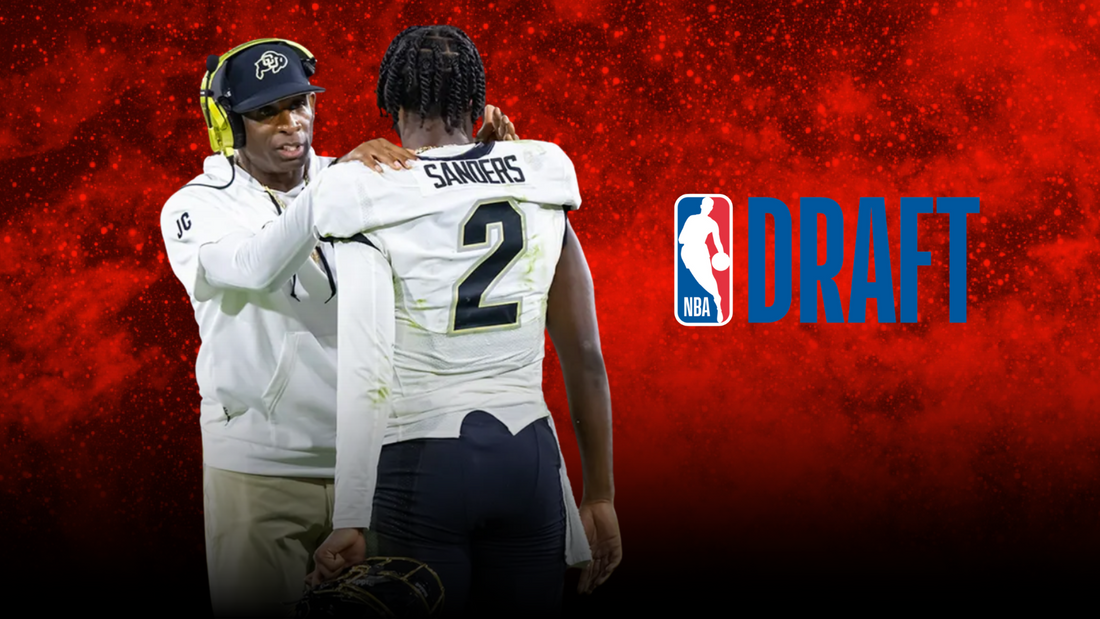
Steelers Snub: The Real Story Behind Pittsburgh’s Refusal to Draft Shedeur Sanders
By Jason Bolton June 13, 2025 11:54
The 2025 NFL Draft brought one of its most surprising narratives with the unexpected slide of Colorado quarterback Shedeur Sanders. Widely regarded as one of the top quarterbacks in the class, Sanders was widely projected to be selected in the first round, with the Pittsburgh Steelers holding the No. 21 overall pick considered favorites to draft him. Yet, when the dust settled, the Steelers passed on Sanders, opting instead for defensive tackle Derrick Harmon from Oregon. This decision has sparked intense debate and speculation about Pittsburgh’s draft strategy and their true valuation of Sanders.
Despite public betting markets and much of the media consensus pointing toward the Steelers selecting Sanders, insiders have revealed that Pittsburgh never seriously intended to draft him in the first round. Gerry Dulac, a respected Pittsburgh Post-Gazette insider, clarified on the Rich Eisen Show that “despite what all the national people thought, they did not intend to draft him. If he was there in the sixth round, maybe. But the people that had him going to the Steelers and had him going at 21, that just wasn’t going to happen. No quarterback was going at 21.” This statement underscores that the Steelers’ front office prioritized other positions and had different quarterback prospects graded higher internally.
The Steelers’ choice of Derrick Harmon reflected their urgent need to bolster a defensive line that struggled late in the 2024 season. Head coach Mike Tomlin emphasized the importance of reinforcing the interior defense, calling Harmon a player with “Steeler DNA” capable of dominating both run and pass defense. Harmon led the FBS with 34 quarterback pressures as a defensive tackle and posted a 10.7% pressure rate, ranking second nationally. Tomlin’s confidence in Harmon’s ability to contribute immediately was a decisive factor in the pick.
Meanwhile, Pittsburgh’s quarterback room remains uncertain. The team selected Ohio State’s Will Howard in the sixth round, signaling a preference for developmental quarterbacks rather than investing a premium pick on Sanders. Jeremy Fowler, NFL insider, noted that the Steelers “continue to be a viable option for Shedeur Sanders” but only as a potential Day 3 pick, reflecting the team’s willingness to take a flyer on Sanders later rather than committing early.
Sanders himself made a curious comment before the draft, referencing the Steelers’ quarterback situation and hinting at the possibility of Aaron Rodgers joining the team. He mentioned favorite quarterback-receiver duos, including Rodgers and Davante Adams, before acknowledging Pittsburgh’s setup with “Whoever is to be quarterback for Metcalf and George Pickens, whoever that is.” This cryptic remark fueled speculation but ultimately did not translate into a first-round selection.
The Steelers’ refusal to draft Sanders early has been puzzling given his skill set and pedigree as the son of Hall of Famer Deion Sanders. Analysts like Emmanuel Acho have praised Sanders’ intangible qualities, saying, “He just has ‘It.’ He doesn’t have the strongest arm, he doesn’t have the quickest legs, but for whatever reason, there’s just something about him that turns franchises around.” Yet, Pittsburgh’s front office clearly weighed other factors such as scheme fit, readiness, and financial considerations more heavily.
The Steelers’ decision to pass on Shedeur Sanders in the first round was a calculated move driven by roster needs and internal evaluations rather than a lack of interest or disrespect. While Sanders’ draft slide remains one of the biggest surprises of 2025, Pittsburgh’s focus on defense and preference for later-round quarterback prospects reveal a team committed to a long-term plan that does not hinge on Sanders as an immediate starter. Whether this strategy pays off remains to be seen, but for now, the Steelers’ snub of Sanders is understood as a strategic choice, not an oversight.


































































